Are you ready to take your research ambitions to the next level? Crafting a compelling postgraduate research proposal is essential for securing your position and funding in the academic world. In this article, we'll explore the key elements of an effective proposal and offer tips on how to present your ideas persuasively. Join us as we dive into the world of research proposals and get inspired to start writing!

Clear and Concise Title
A clear and concise title is essential for capturing the essence of a postgraduate research proposal. An effective title succinctly conveys the primary focus of the research, ideally under 15 words, allowing readers to quickly grasp the study's objective. Including key terms relevant to the field enhances searchability in academic databases. Providing context and significance in the title can set the tone for the rest of the proposal. For example, "Examining the Impact of Urban Green Spaces on Mental Health in New York City: A Quantitative Analysis" specifies the geographic location (New York City), the subject matter (Urban Green Spaces, Mental Health), and the methodological approach (Quantitative Analysis), thereby offering a comprehensive preview of the research.
Statement of Purpose
A Statement of Purpose serves as a critical component of a postgraduate research proposal, detailing the applicant's motivations, research interests, and alignment with the academic program. Typically spanning one to two pages, it offers insight into the applicant's academic background, professional experiences, and specific goals within their chosen field, such as Biochemistry or Environmental Science. The narrative should articulate a clear research question or topic that the applicant intends to explore, supported by relevant literature and existing studies. Furthermore, highlighting potential faculty mentors within the department, such as Dr. Smith at Harvard University who specializes in molecular genetics, can demonstrate a well-researched fit between the applicant's aspirations and the department's strengths. Additionally, emphasizing the applicant's unique contributions to the research community and potential for future impact can strengthen the proposal significantly, reflecting the applicant's commitment to advancing knowledge within their discipline.
Research Objectives and Questions
Postgraduate research proposals require a clear articulation of research objectives and questions to guide the study's direction and focus. Defining precise objectives, such as investigating the impact of climate change on urban biodiversity in metropolitan areas like New York City or exploring advancements in renewable energy technology, is essential. Research questions should be specific and measurable, for instance, "How do rising temperatures affect species diversity in Central Park?" or "What are the most effective solar panel technologies adopted in Germany between 2015 and 2020?" Establishing these foundations provides a framework for analyzing data, ensuring that the research remains aligned with its intended goals. The clarity and relevance of these objectives and questions can significantly influence the proposal's success.
Methodology and Approach
In postgraduate research, the methodology and approach to data collection are critical for ensuring the integrity and validity of findings. Quantitative methods, such as randomized controlled trials or surveys, often involve numerical data collection from a sample population. Qualitative methods, like in-depth interviews or focus groups, enable a deeper understanding of participant perspectives, particularly in social sciences. Research may be conducted in various settings, such as laboratory environments or field contexts, depending on the subject matter. Utilizing mixed methods combines the strengths of both approaches, enhancing data triangulation and providing a more comprehensive view of the research problem. Ethical considerations, such as obtaining informed consent and ensuring confidentiality, are paramount during this process, aligning with institutional guidelines and national regulations in research ethics.
Significance and Impact of Research
The significance and impact of research in the field of renewable energy are profound, addressing critical global issues such as climate change and sustainable development. As of October 2023, global temperatures have risen by approximately 1.2 degrees Celsius compared to pre-industrial levels, underscoring the urgent need for innovative solutions. Research focusing on solar energy, particularly in regions like sub-Saharan Africa, could enhance access to clean electricity for over 600 million people lacking reliable energy sources. Furthermore, exploring wind energy potential in areas like the Great Plains of the United States can contribute significantly to reducing reliance on fossil fuels, which accounted for 79% of total U.S. energy consumption in 2022. By advancing technologies such as energy storage systems and efficient photovoltaic cells, this research aims to pave the way for a greener future, potentially decreasing greenhouse gas emissions by up to 70% by 2050, aligning with global climate goals set by the Paris Agreement.
Letter Template For Postgraduate Research Proposal Submission Samples
Letter template of postgraduate research proposal submission for funding application
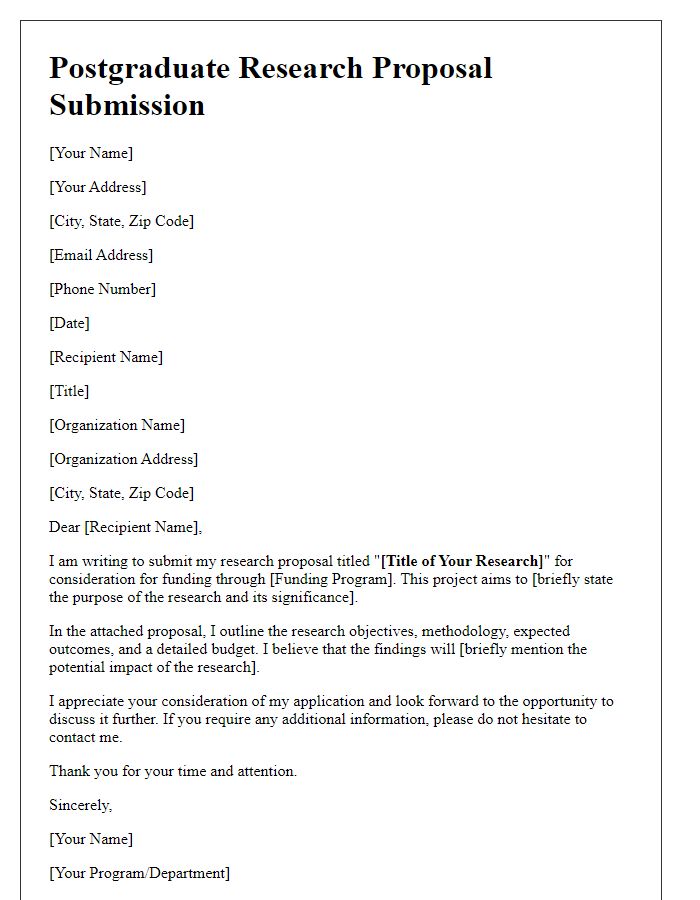
Letter template of postgraduate research proposal submission for academic review
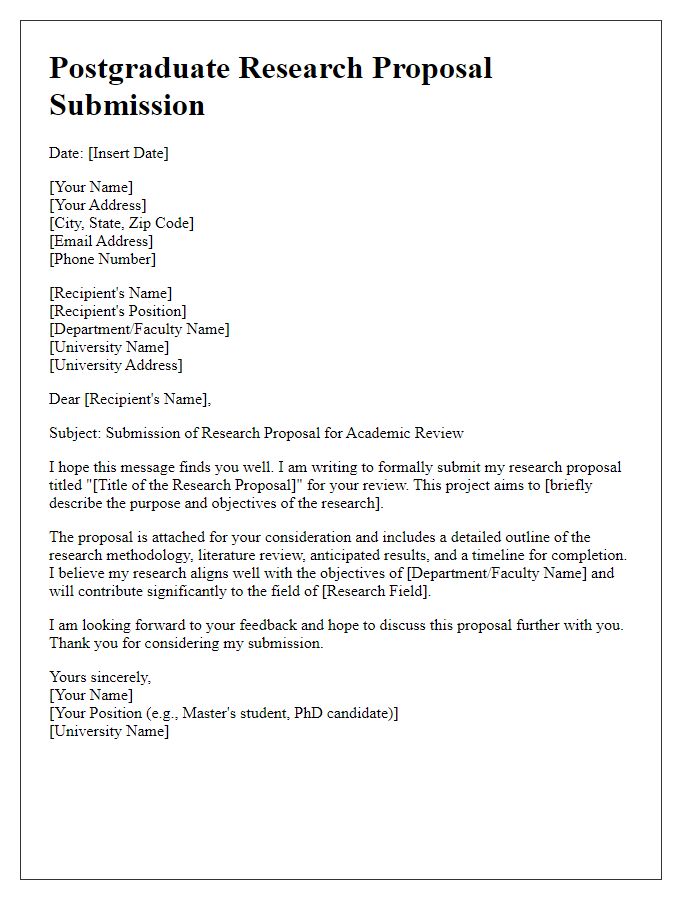
Letter template of postgraduate research proposal submission to a supervisor
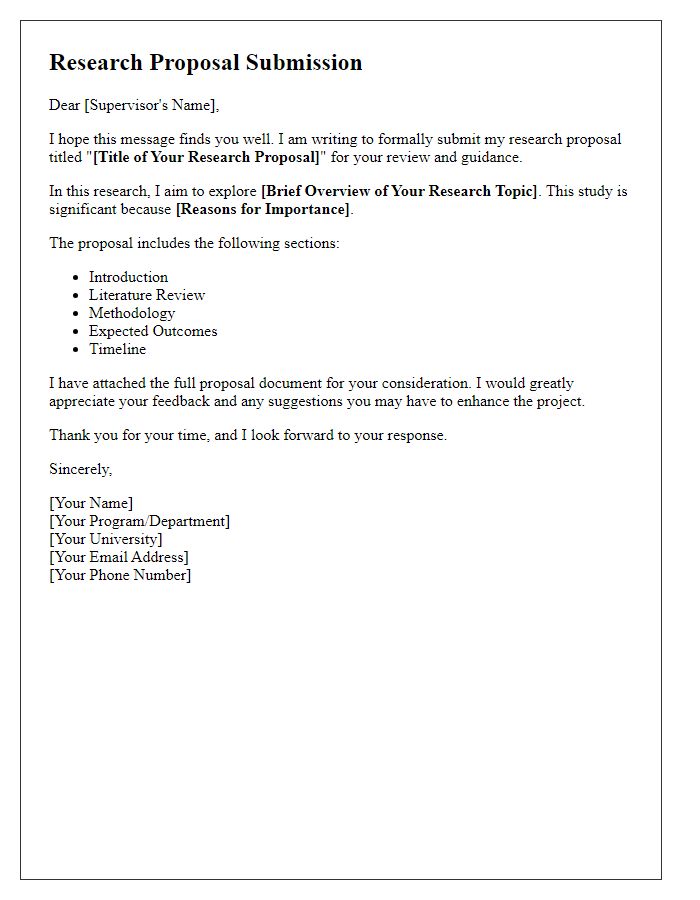
Letter template of postgraduate research proposal submission for conference presentation

Letter template of postgraduate research proposal submission for institutional approval
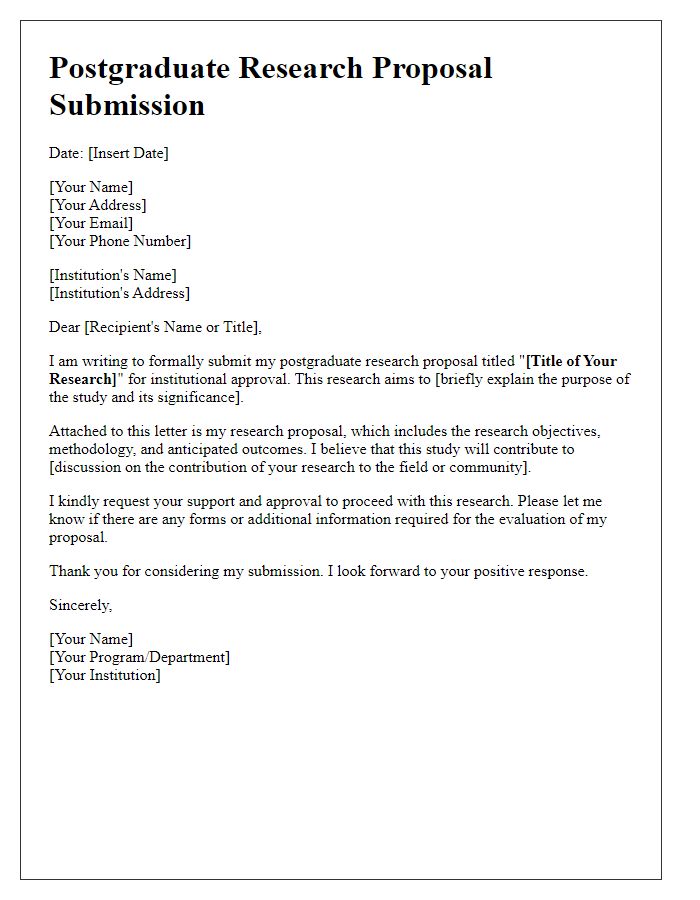
Letter template of postgraduate research proposal submission to a research committee
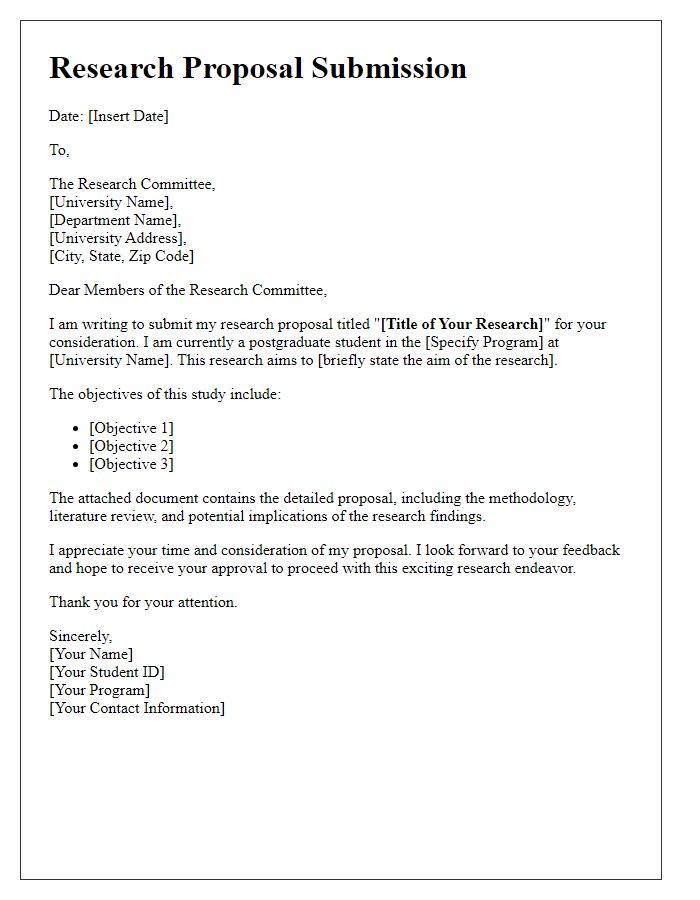
Letter template of postgraduate research proposal submission for collaboration request
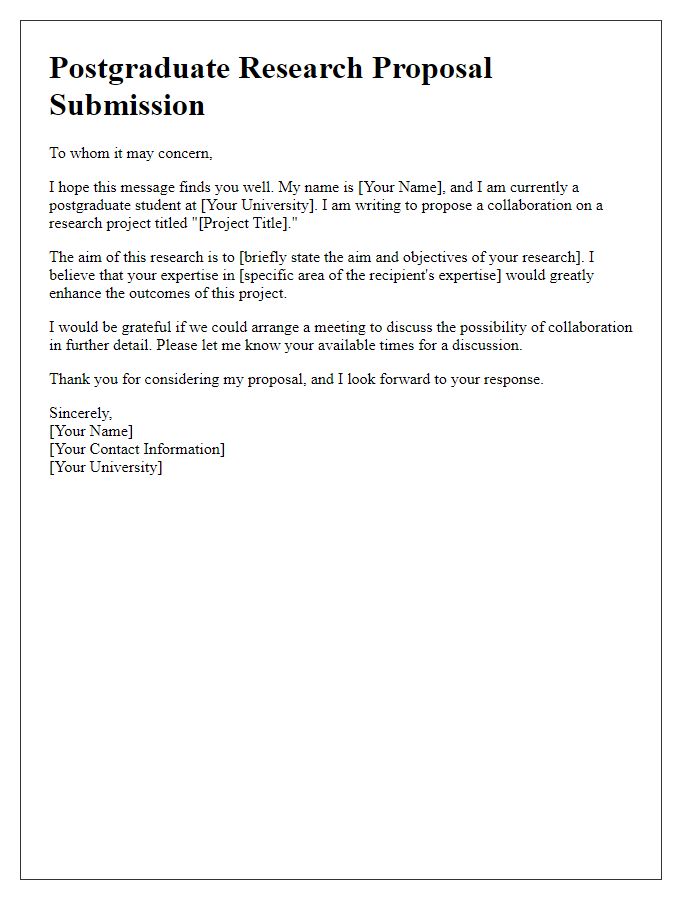
Letter template of postgraduate research proposal submission for thesis committee
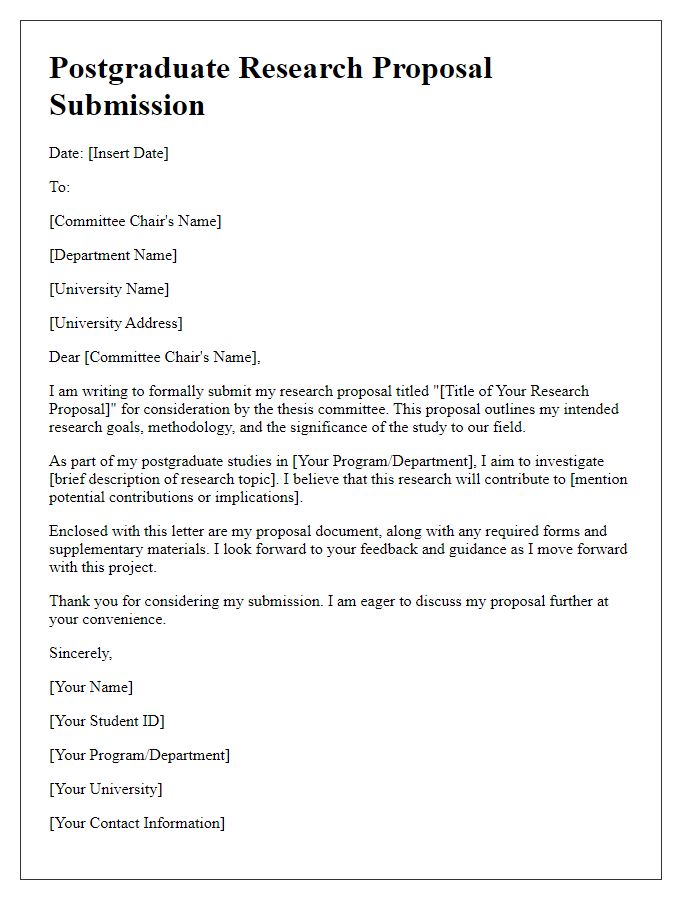
Letter template of postgraduate research proposal submission for journal publication


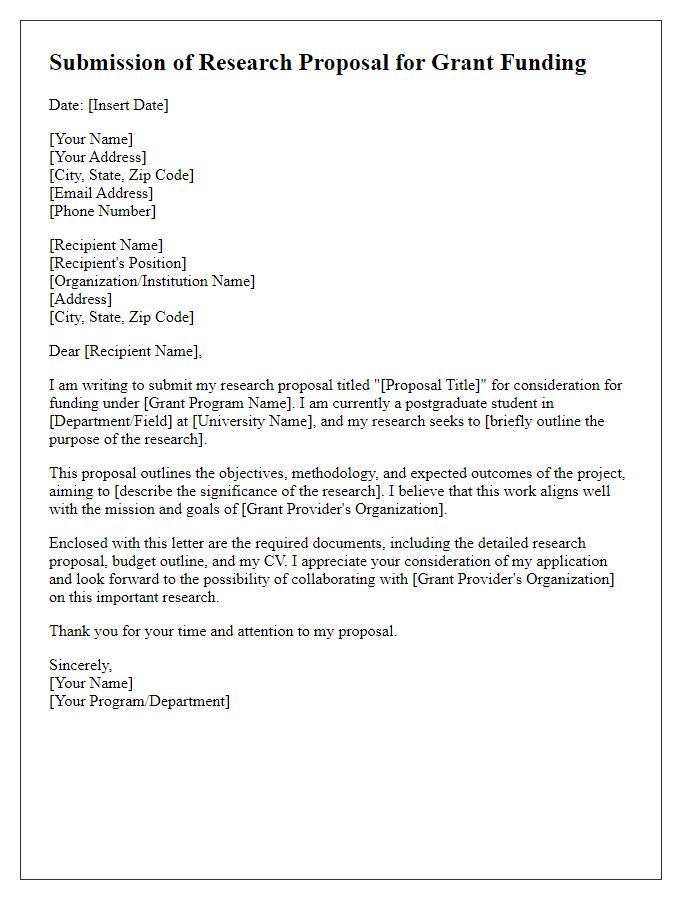


Comments